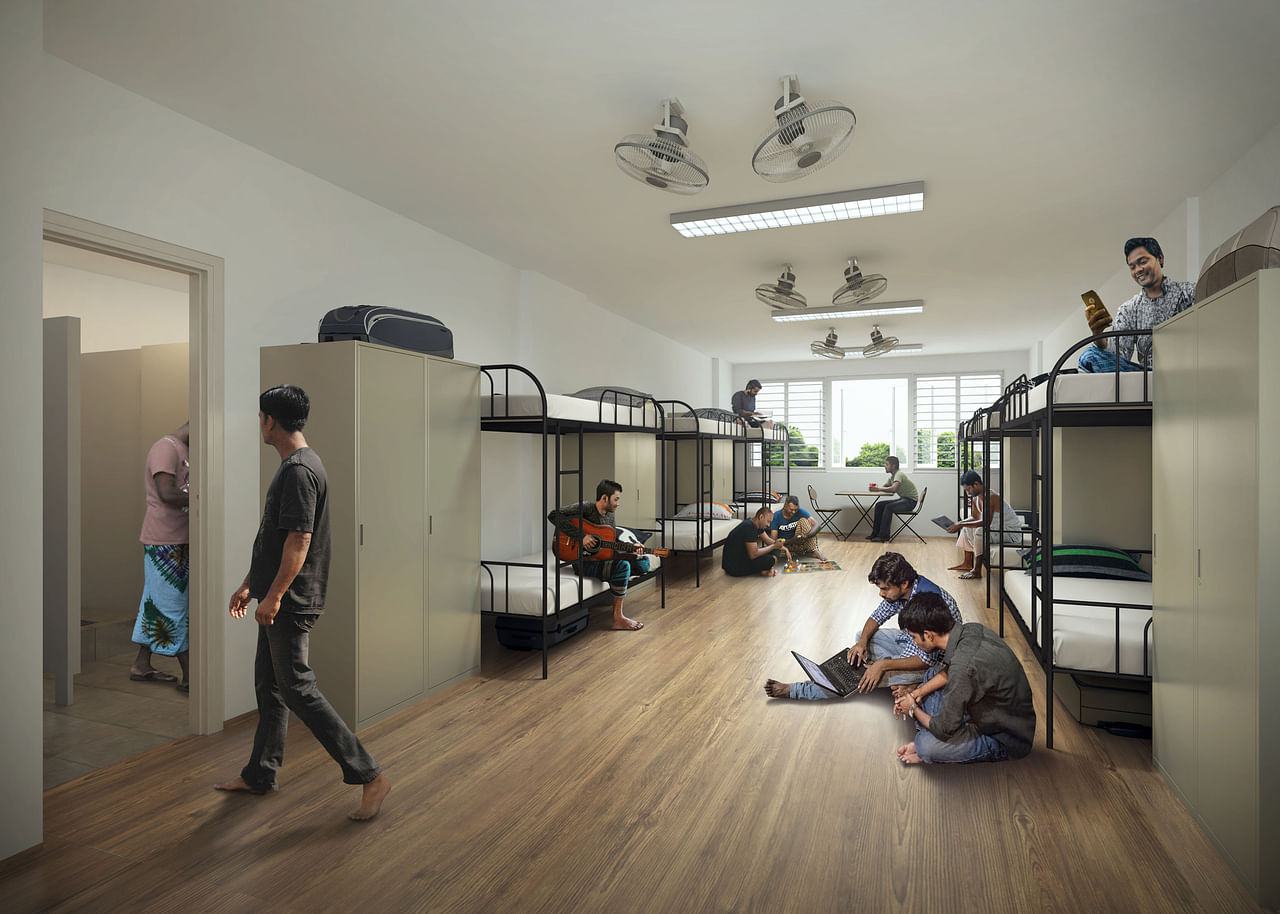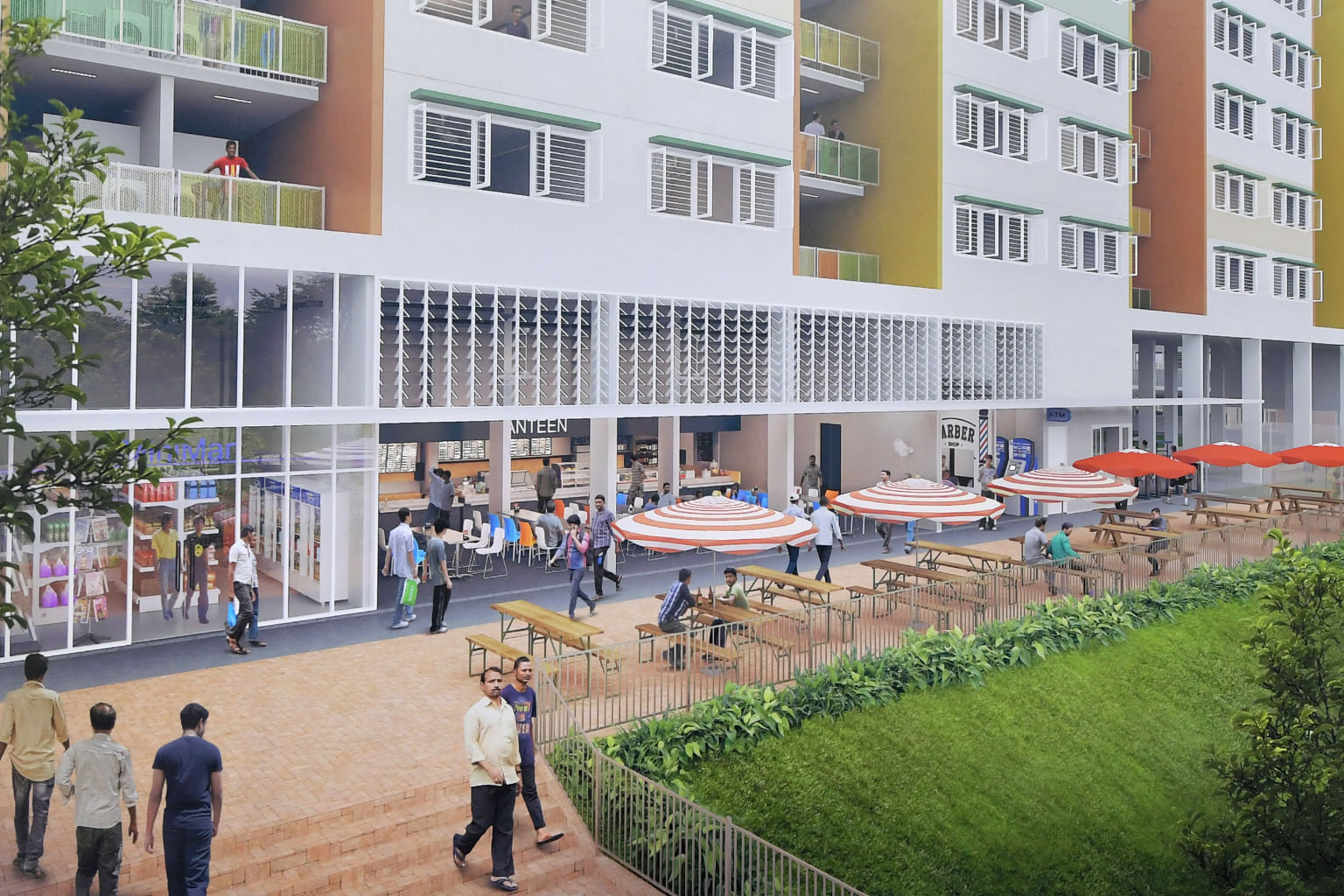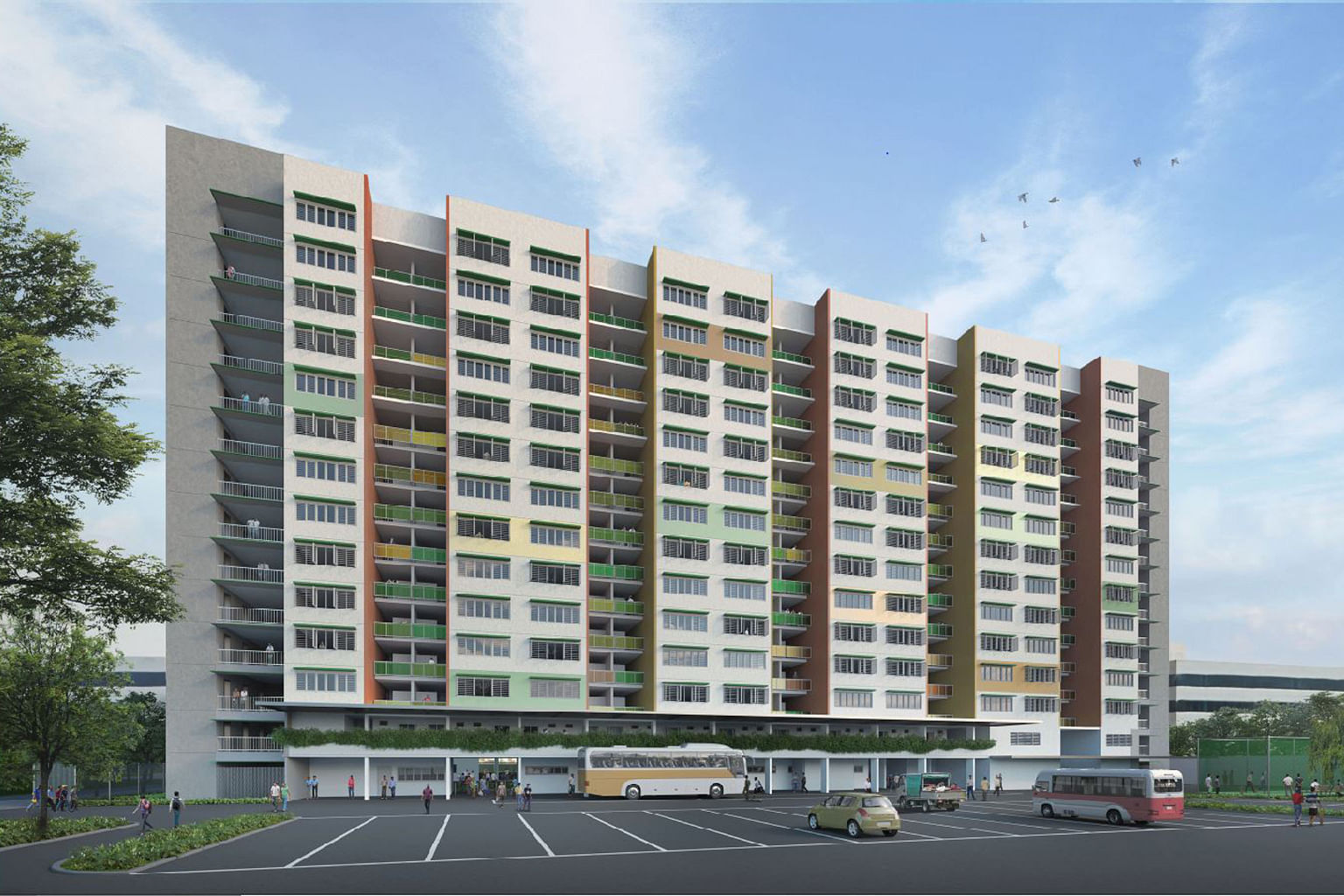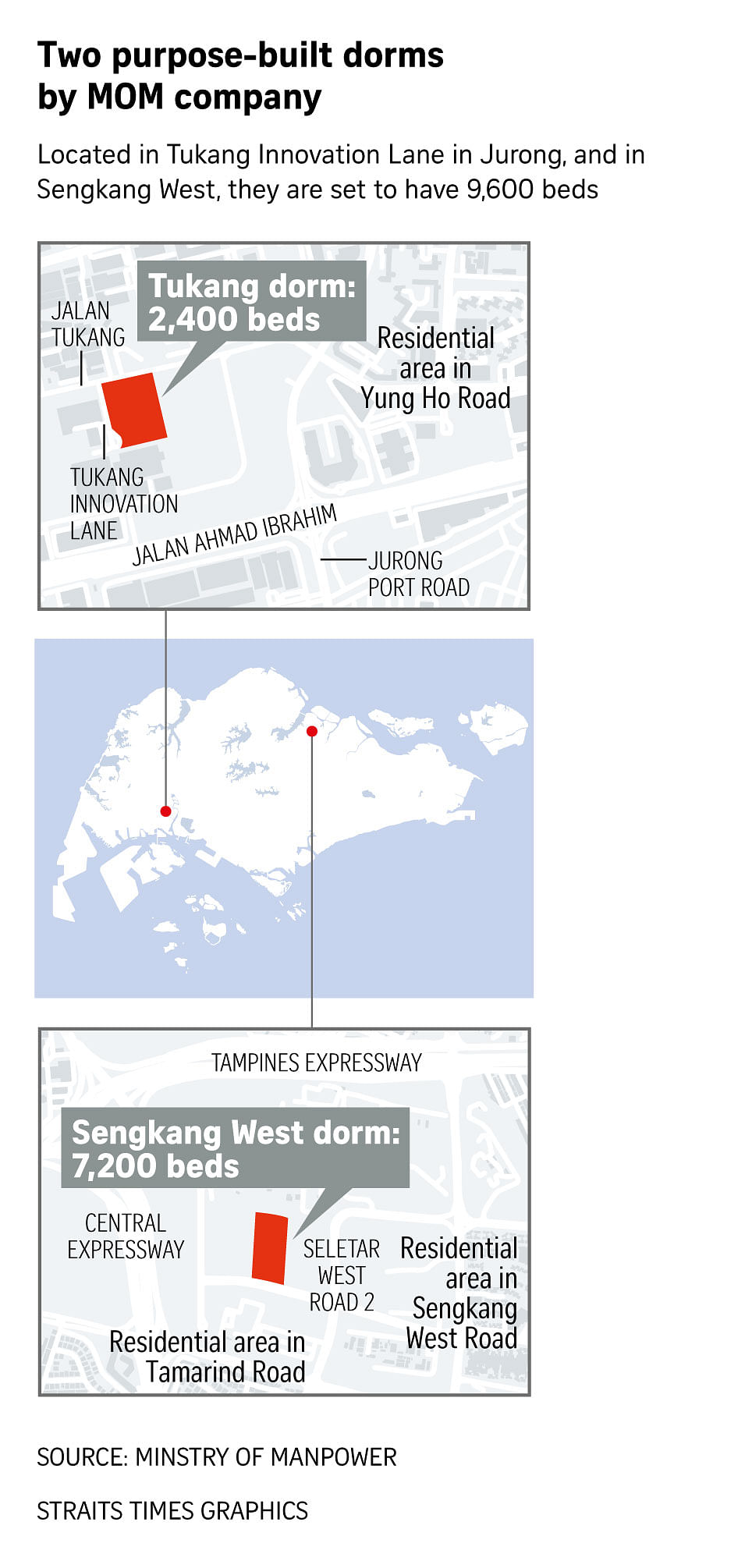MOM to set up new corporate entity to build and run 2 foreign worker dorms
A company limited by guarantee will be set up by the Ministry of Manpower (MOM) by the end of 2022 to build and own two purpose-built dormitories for foreign workers.
The company will operate the dorms with selected partners as test beds for innovations in foreign worker accommodation, as well as help the ministry better understand how migrant workers live and work and how operators manage these dormitories.
To enable these efforts, the ministry will set up a new corporate entity called Nest Singapore, slated for the fourth quarter of 2022. Nest is an acronym for Nurture, Engage, Support and Transform.
The first of the two purpose-built dorms broke ground in Tukang Innovation Lane in Jurong on Saturday.
Minister for Manpower Tan See Leng said in a speech at the event: "These insights will support MOM's efforts to transform dormitory living and management, and it allows the Manpower Ministry to better support the dormitory landscape and be better prepared for any future crisis."
Slated to begin operating in 2025, the Tukang dorm will have a capacity of 2,400 beds.
The other dorm at Sengkang West is set to begin operations in 2028 with 7,200 beds.
An MOM spokesman told reporters that the ministry has no plans currently to build more dorms because its primary aim is to drive innovation by sharing best practices it develops with the industry, either through publishing guidelines or regulations.
Both dorms will be built to improved standards that apply to new dorms built after September 2021 to strengthen public health resilience and liveability, said Dr Tan.
These include having more spacious and better ventilated rooms with occupancy caps and en-suite toilets, as well as modular space and segmented communal facilities.
The Tukang dorm will occupy a site measuring 1.14ha (slightly larger than the size of 1½ football fields) and house a maximum of 12 workers in each of its 200 rooms, with kitchens and common areas for the dedicated use of 120 residents or fewer.
The ministry will also introduce features, above and beyond what the improved standards entail, to pilot new ways of reducing the risk of transmission of infectious diseases and enhance liveability.
These include higher ceilings for improved ventilation and greater comfort for residents, as well as en-suite laundry facilities to reduce intermingling in common areas.


There will be larger recreation spaces such as gyms, multi-purpose spaces and sports courts, which can be repurposed as medical or isolation facilities during future disease outbreaks, said Dr Tan.
However, he added: "Physical infrastructure alone cannot transform the communal living environment for our migrant workers."
It is also important to improve the lifestyle of these workers and foster a sense of hope and community, he said.
To do so, the ministry will explore new solutions, including a unified technological platform that allows virtual training programmes for migrant workers, videoconferencing functions for convenient communications within the residential community, and one-stop access to services within the dorms.
"We will also look at ways to encourage health-seeking behaviours among residents to facilitate quicker upstream intervention and support."


Dr Tan also said MOM intends to work closely with dormitory residents and community partners, such as non-governmental organisations, to jointly develop recreational programmes and other meaningful activities that foster community.
The reason for MOM to join the fray was twofold: To drive innovation and transform practices in migrant worker housing, and grow the ministry's capabilities in dormitory management.

Dr Tan said: "MOM and Nest can assess the operational feasibility, residents' receptiveness, market viability, and effectiveness of these proofs of concept."
He also noted that the ministry's Assurance, Care and Engagement Group, which supports the well-being of migrant workers, has already worked closely with dormitory operators to organise festive events and recreational activities within the dorms over the last two years.
Dr Tan said this experience has allowed the ministry to better understand and empathise with migrant workers' living and working practices, and how operators manage dormitories.
"The set-up of Nest, therefore, is to directly operate the two new purpose-built dorms with the private sector. This will take us one step further."
Get The New Paper on your phone with the free TNP app. Download from the Apple App Store or Google Play Store now



